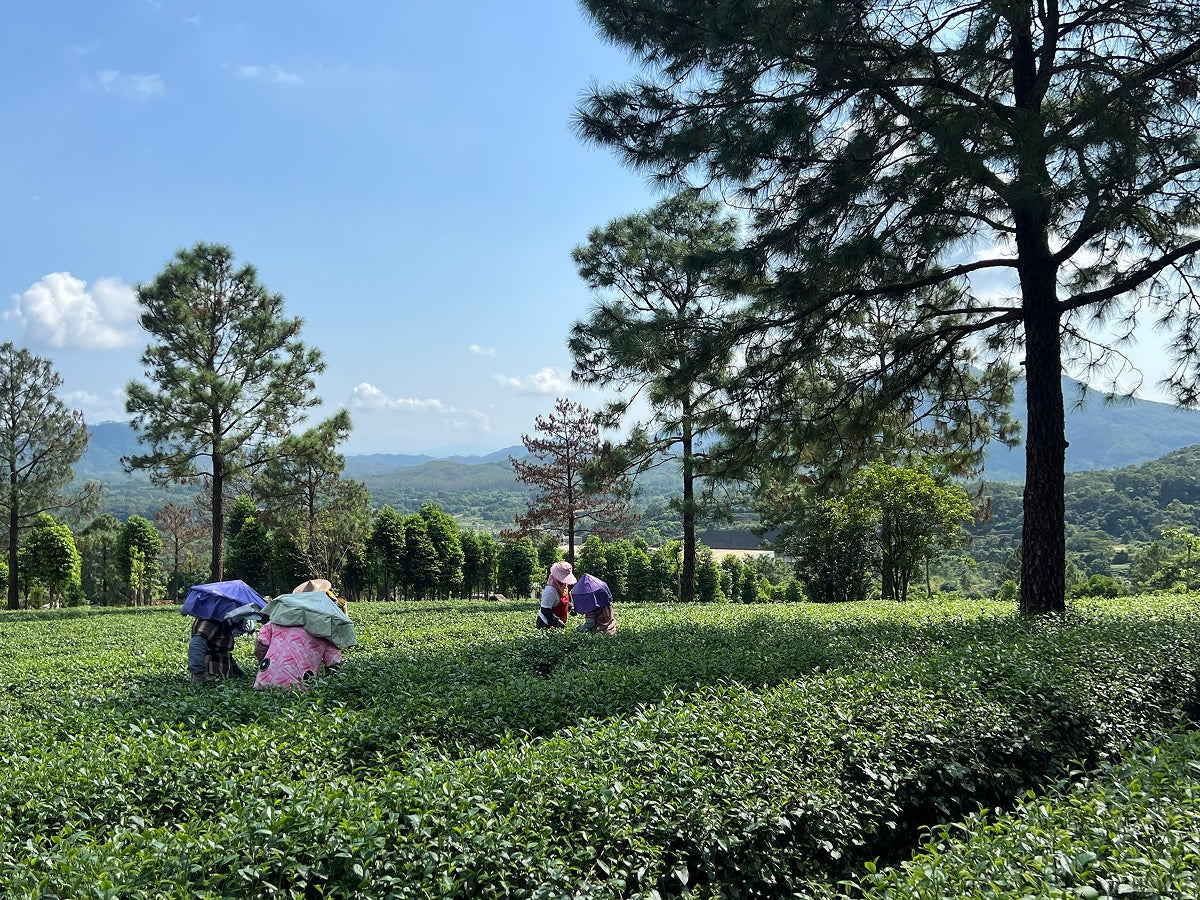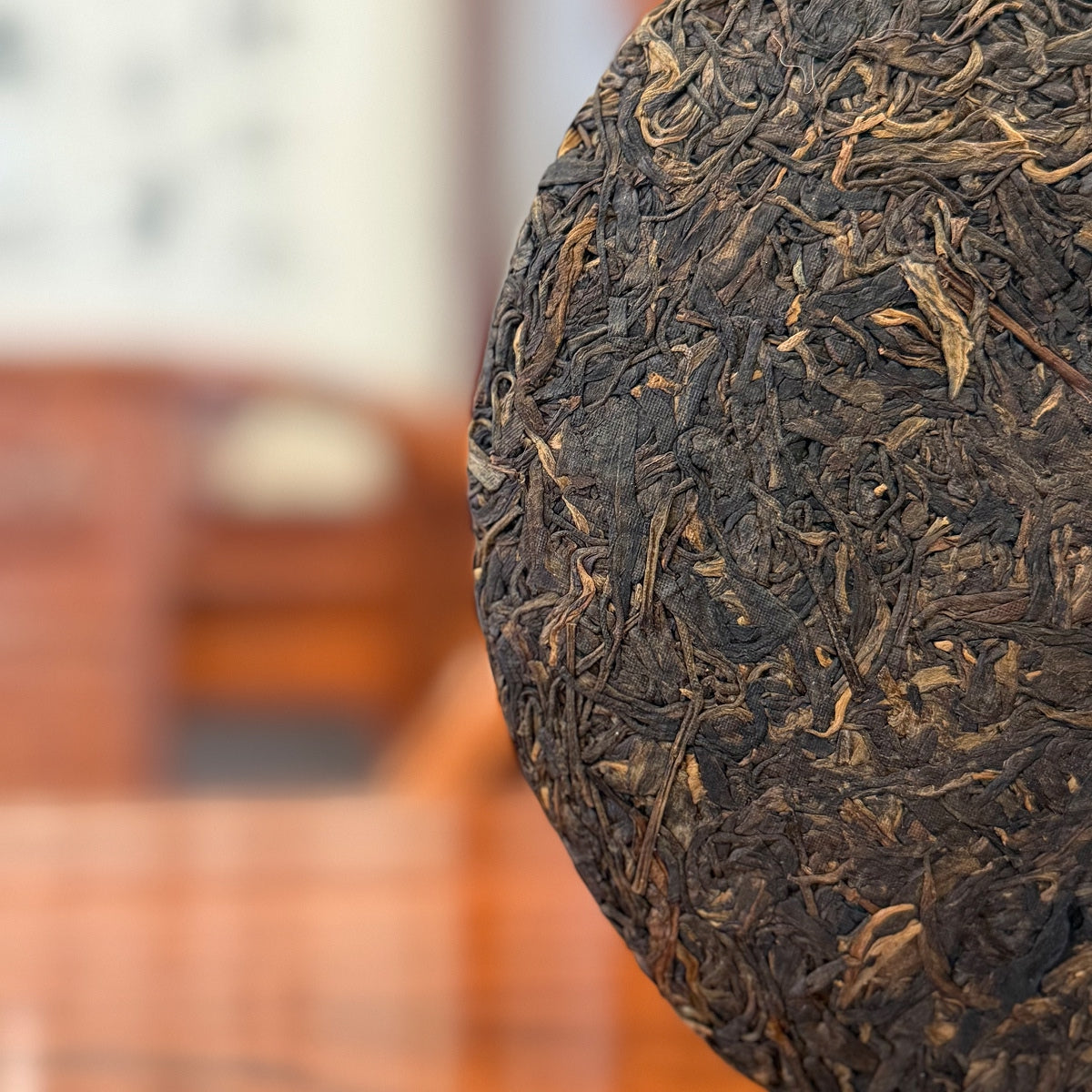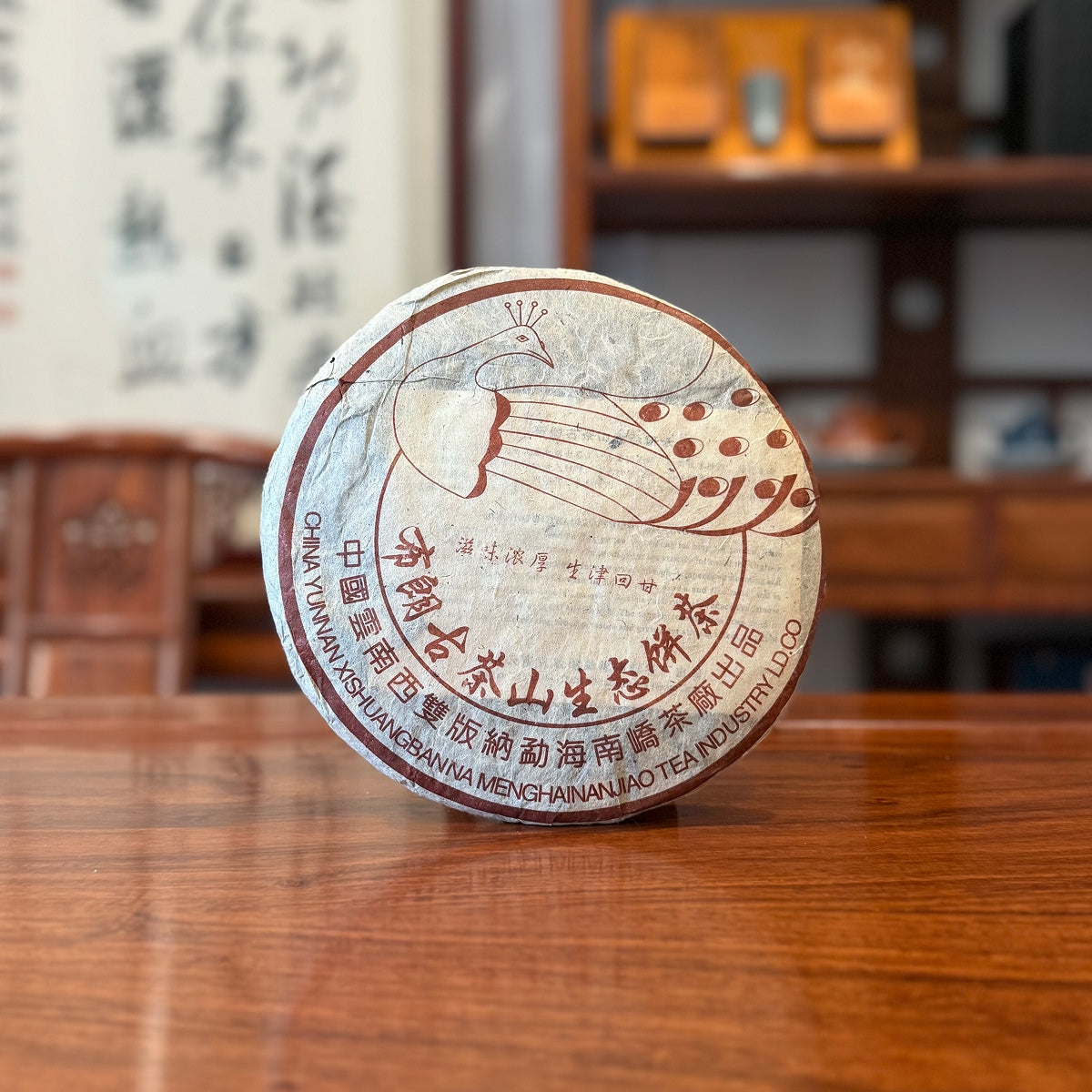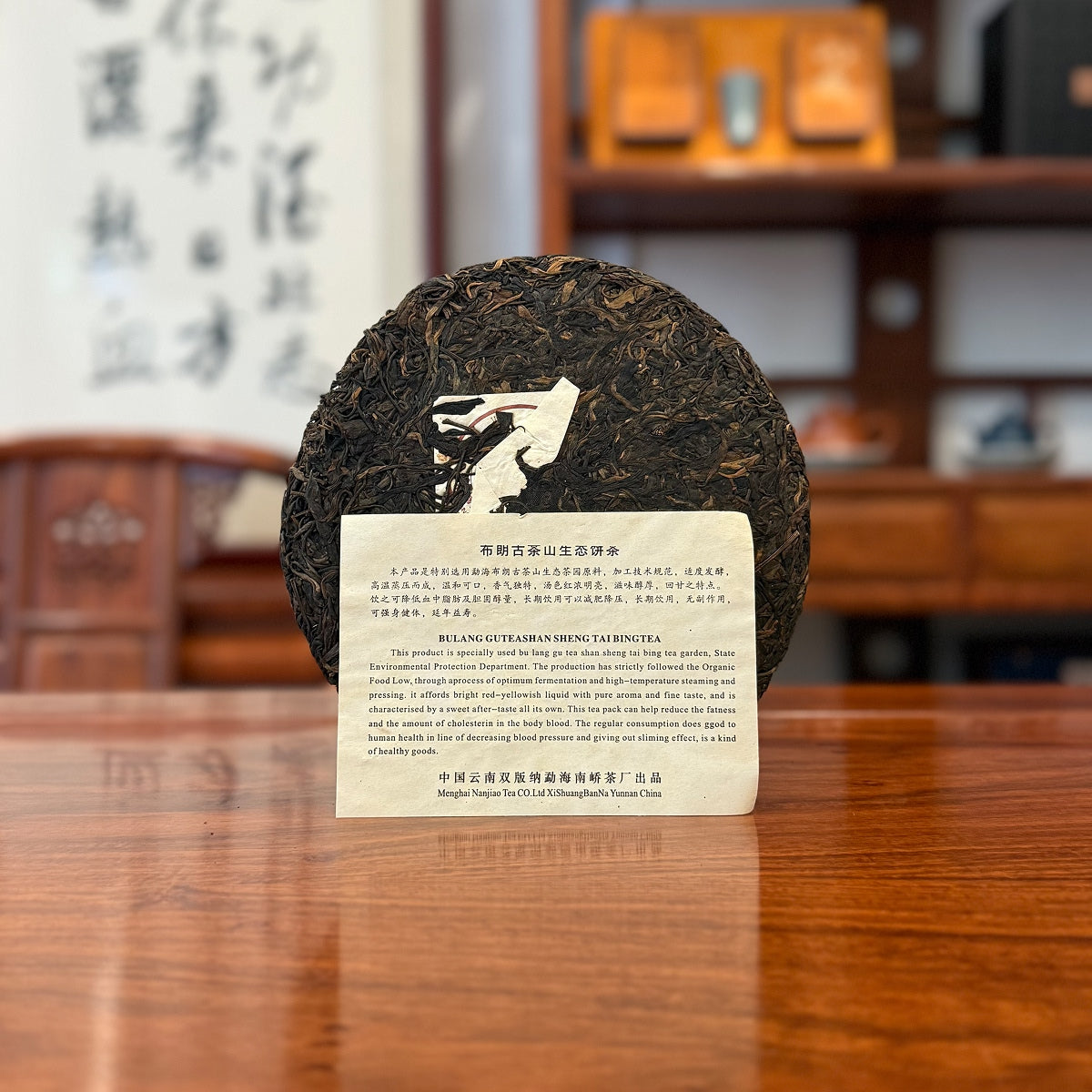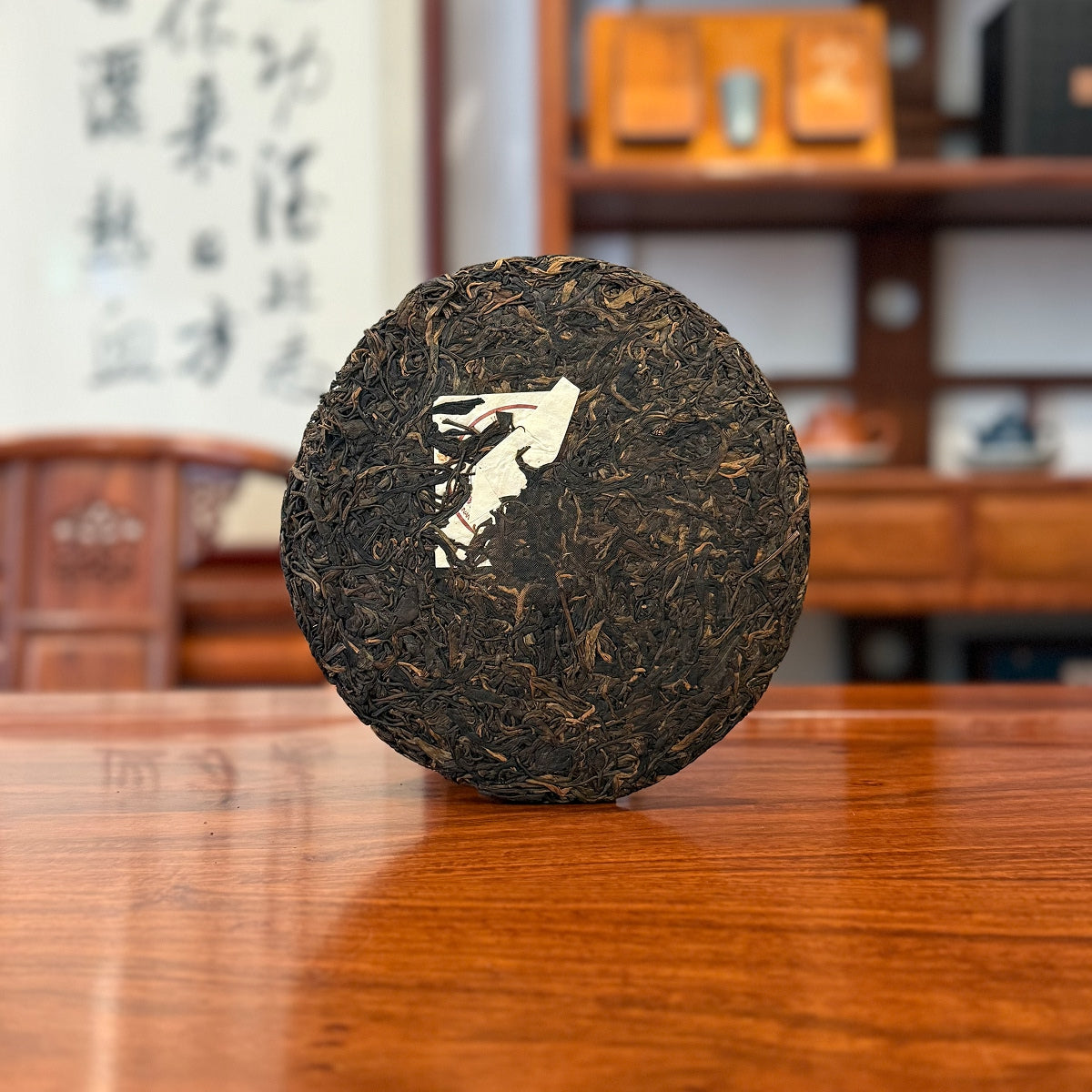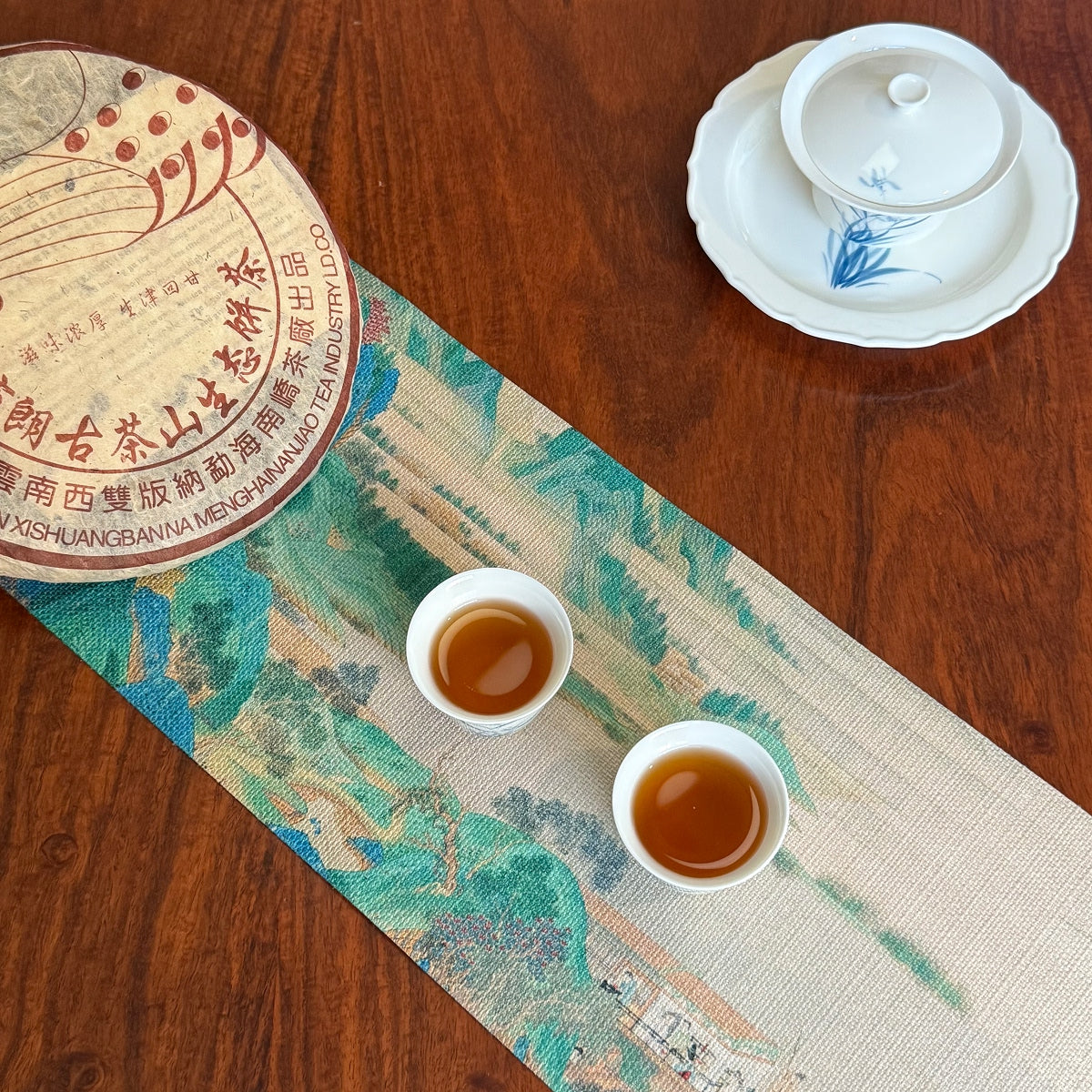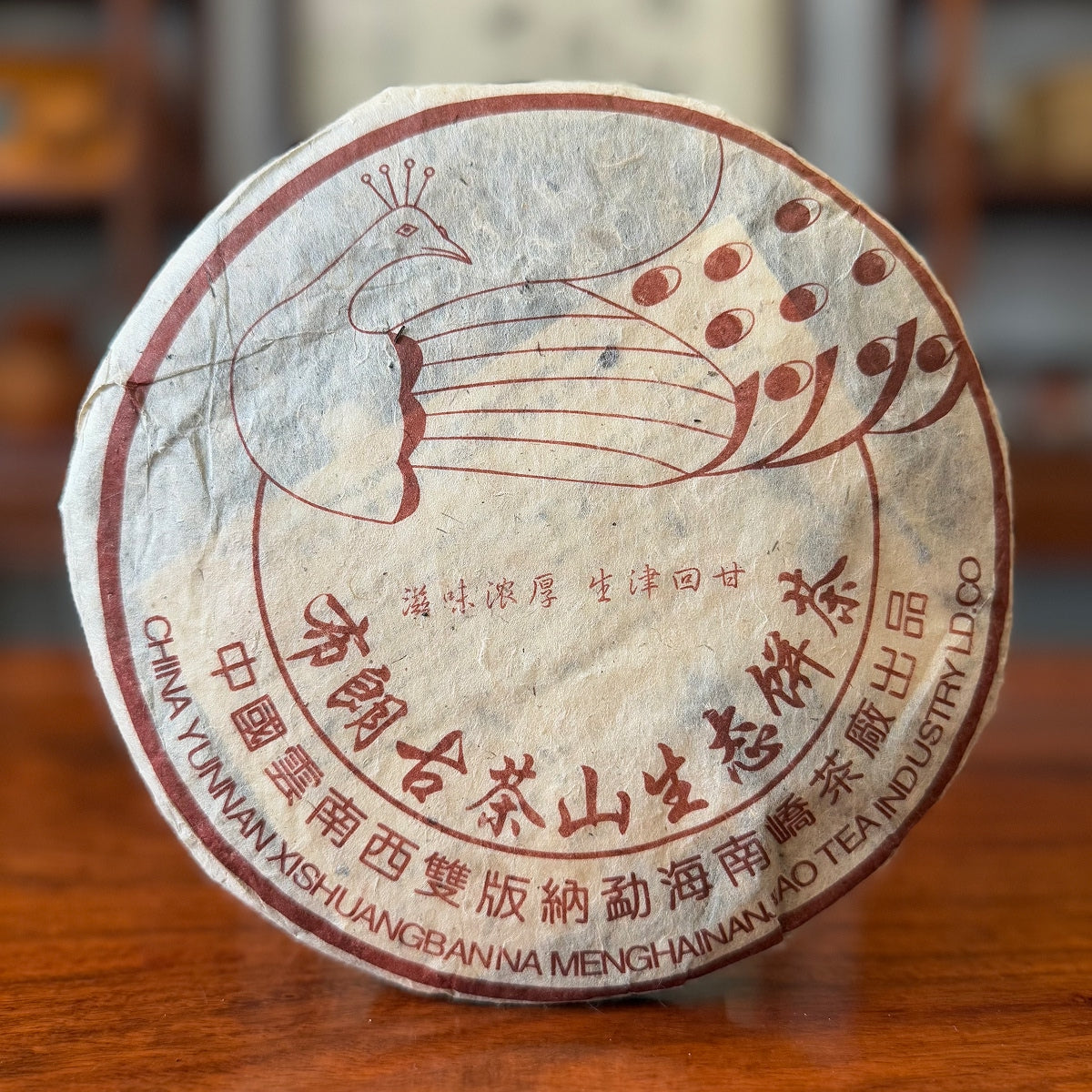
2003 Bulang Mountain Raw Pu-erh Tea Cake
Yunnan Pu-erh (Pu’er)
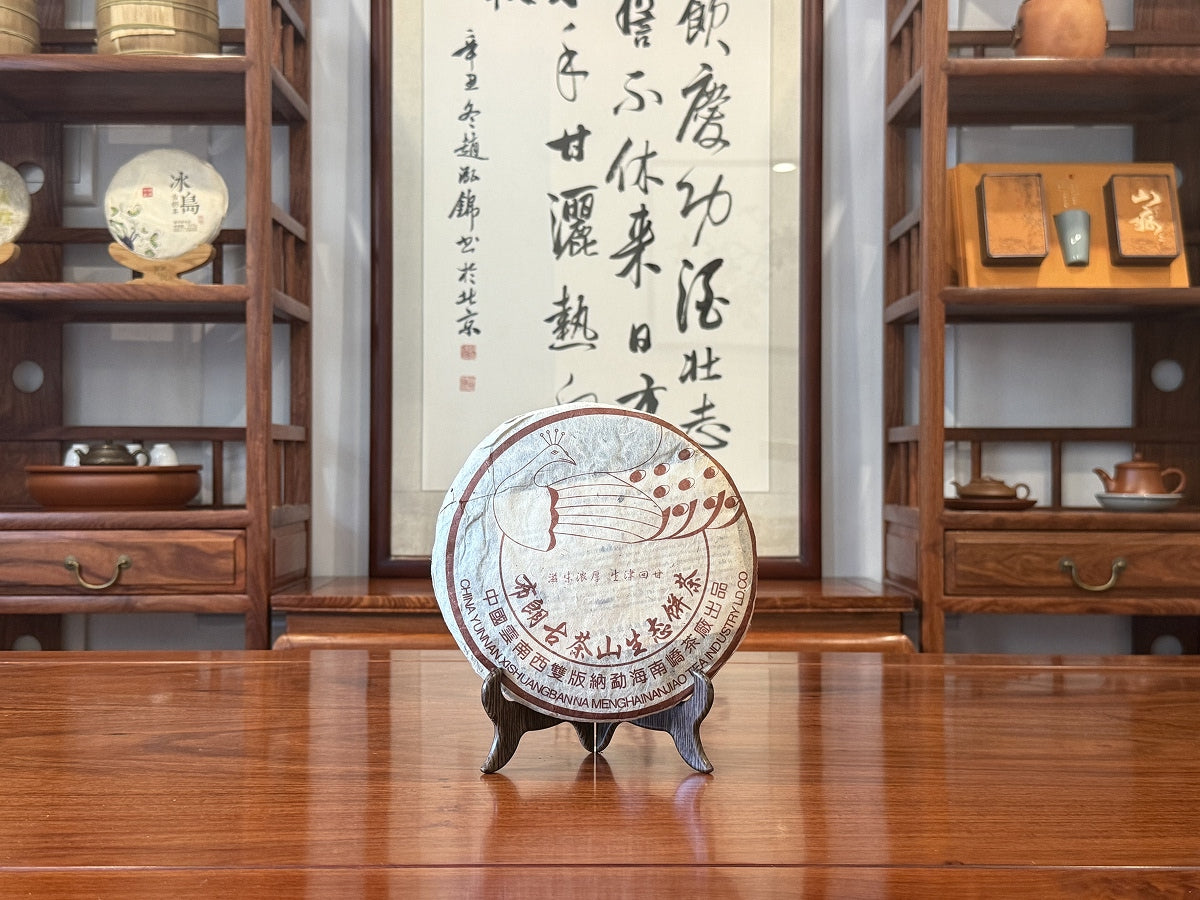
This 2003 Bulang Mountain Raw Pu-erh Tea Cake, naturally aged for 22 years, comes from Bulang Mountain (Bu Lang Shan), one of the earliest regions in the world where Pu-erh tea was cultivated, with a tea growing history stretching back over 1,400 years. Known as the “hometown of Pu-erh tea,” this rare aged raw Pu-erh tea is born from this ancient and legendary mountain.
Origin of Bulang Mountain
Bulang Mountain is located in the Menghai tea-producing region of Xishuangbanna, Yunnan Province, China. It has long been home to the Bulang ethnic group, known for their traditional tea culture.
Historical Background of Bulang Tea
In earlier times, the Bulang people lived through hunting, and their diet consisted mainly of fire-roasted food. Legend has it that during a sudden outbreak of plague, when no remedy was available and the tribe faced despair, an ancestor chewed a wild tea leaf by chance and miraculously recovered. From that moment on, the Pu-erh tea tree was regarded as a sacred gift from heaven and nature, revered and protected by generations.
Cultural Wisdom of the Bulang People
Among the Bulang people, there is an old saying:
“If you leave gold to your descendants, it will one day be spent; but if you leave a tea leaf and a seed, they can nourish them for generations.”
This deep reverence and love for tea laid the foundation for Bulang Mountain’s thousand-year bond with raw Pu-erh tea and its continued cultivation.
Pristine Mountain Ecosystem
The ecosystem of Bulang Mountain remains well preserved, sitting at an average altitude of around 1,500 meters. The area is abundant in ancient tea tree resources, where old tea gardens and pristine forests coexist in harmony, creating a unique natural environment for premium Pu-erh tea cultivation.
Ideal Soil and Growth Conditions
The soil is rich in organic matter, providing ideal conditions for tea trees to flourish. Teas from this area are renowned for their dense inner quality, rich texture, and natural wild mountain character, which are key characteristics of collectible raw Pu-erh tea.
Tea Characteristics and Quality
Bulang Mountain is widely recognized as one of the Pu-erh tea regions with the highest drinking and collecting value. Teas from this mountain are famous for their rich, full-bodied flavor, natural sweetness, and long-lasting chaqi energy.
Collectible Value | Rare 22-Year Aged Raw Pu-erh
This 2003 Bulang Mountain Raw Pu-erh Tea Cake, aged naturally for 22 years, is one of the rare aged raw Pu-erh teas currently available from Chinese Tea Group. Its rarity and quality make it a highly sought-after collectible Pu-erh tea for connoisseurs and collectors alike.
Tasting Notes | Aroma, Flavor, and Cha Qi
Its aroma is complex and full, with notes of plum, floral honey, and orchid—deep yet elegant. The liquor is bright and clear, with a smooth and full-bodied mouthfeel.
The taste is rich and intense, with powerful and stimulating chaqi, showcasing the wild mountain energy of Bulang tea. The returning sweetness and salivation linger long, leaving a deep impression and reflecting the classic character and collectible value of aged raw pu-erh.

Gongfu Tea Brewing Guide
(Traditional Method)
| Water Temperature | 100°C (212°F) |
| Tea-to-Water Ratio | 8g tea per 160ml water |
| Steeping Time | |
| Brews 1–5 | Steep for 10–15 sec |
| Brews 6–10 | Steep for 15–20 sec |
| Brews 11–15 | Steep for 20–25 sec |
| Brews 16+ | Steep for 25+ sec |
Tips: Tea masters recommend steeping times based on each tea's unique flavor, starting the timer after pouring the water.
Common Brewing Guide
(Easy Everyday Preparation)
| Water Temperature | 100°C (212°F) |
| Leaf-to-Water Ratio | 3g per 100ml |
| Steeping Time | 1.5 minutes |
| Subsequent Infusions | Increase by 30 seconds each time |
Tips: You can adjust the steeping time or leaf-to-water ratio to suit your taste—shorten the infusion for a lighter brew or extend it for a stronger one.
